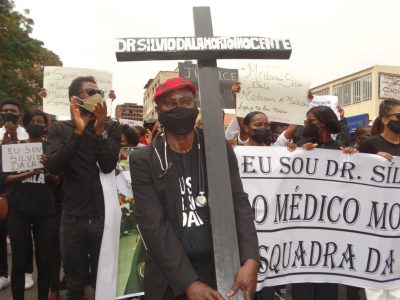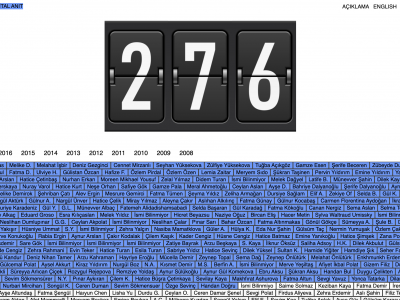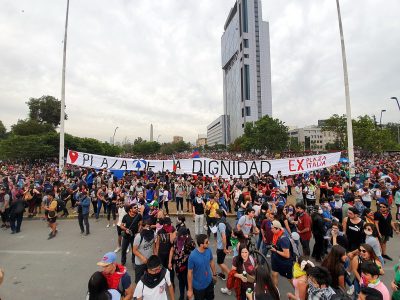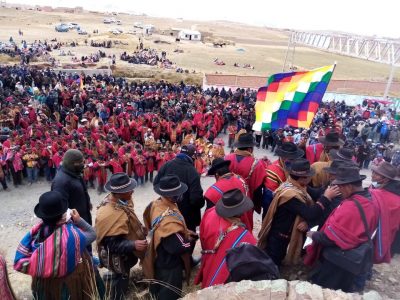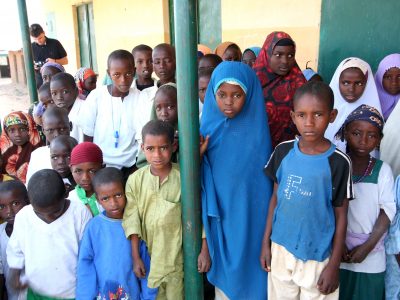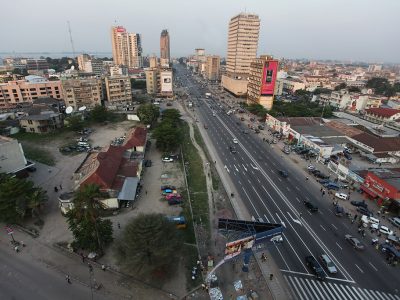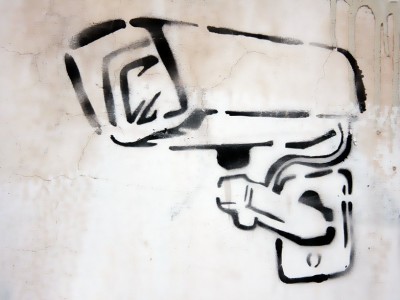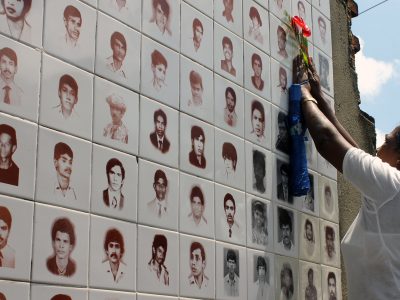Stories about Digital Activism from September, 2020
Protests in Angola demand justice for Silvio Dala, a doctor who died in police custody
Demonstrators and the Union of Doctors challenge the police's version of events, which says Dala died after fainting and falling at the police station.
Toward a cyberfeminist future: A new study centers African women as protagonists online
Over 3,000 women from Ethiopia, Kenya, Uganda, Senegal, and South Africa, were interviewed about their "perceptions of digital safety" and online gender-based violence in a new, large-scale study by Pollicy.
Masculinity in my genes/jeans
Manoeuvring the complexities of being a boy or man in Caribbean societies assumes "there was a DNA of maleness already living in us, sometimes waiting to be activated."
#FreeMuay: Groups call for release of Laotian net idol and environment advocate
"Muay bravely stood up to protect the environment. Muay does not deserve to be let alone imprisoned from taking this stand."
In Turkey, women rise up to stop withdrawal from the Istanbul Convention
The public outcry seems to have made an impression on the AKP—a decision on the Convention that was meant to be announced in August has now been postponed.
Fearing the national security law, Hongkongers change their social media habits
Of the 2,587 people who responded to an online survey conducted by The Stand News, 96 percent said they fear "loss of free speech."
Journalists face sedition charges under cybercrime law in Pakistan
"The alarming increase in such actions against journalists confirms that the government is bent on muzzling freedom of expression."
A new ‘cyber defence’ system in Oman raises human rights concerns
The Omani Sultanate passed a new decree giving security authorities further control over the internet.
Lebanon protests: Authorities prey on digital spaces to silence criticism
While social media and WhatsApp have been extensively leveraged by demonstrators to organize, document, and sprawl the protest, Lebanese authorities have resorted to identifying and persecuting dissidents.
Social media in Latin America: Caught between a rock and a hard place
As researchers, it is very difficult to know how, or even if, high profile global announcements are actually impacting users in Latin America.
In Bolivia, indigenous Aymara question Bolivia's Independence Day celebrations
"The independence of these countries where we Aymara live did not mean the liberation of the Aymara, but a change of 'master'."
Peru's state TV broadcasts 23 hours in Spanish daily but only 1 hour in indigenous languages
The lack of representation in television reflects how the Peruvian state, in its 200-year history, has treated its indigenous peoples: in a colonial, racist and discriminatory way.
School children and their teacher kidnapped in Nigeria's Kaduna, as armed bandits run amok
The armed bandits who abducted four students and their teacher from Damba-Kasaya, Kaduna State, Nigeria are demanding a ransom to release their captives.
Are Romance languages becoming more gender neutral?
Each language is morphing in its own way -- and not everyone is happy about it.
In DR Congo, will new legislation protect citizens’ digital rights?
In Democratic Republic of Congo, a citizen movement is underway to reclaim digital rights that have been violated for years under a vague and outdated legislation.
We made the largest Mexican telecommunications operator stop blocking secure internet
Group effort, research, perseverance, and Global Voices' journalism played a key role
Surveillance in Lebanon: A crisis of privacy
Intrusions on citizens’ privacy in Lebanon are pervasive and often conducted without proper judicial oversight.
For Asian activists, boycotting Disney's ‘Mulan’ says no to China's nationalist propaganda, censorship and police brutality
"What we're boycotting is the Western commercialization (Disney) of Chinese nationalism. . . which points to how intertwined and convoluted the interests of global capital really are."
Julian Assange supporters rally to defeat extradition to United States
"The extradition to the US of a publisher and journalist, for engaging in journalistic activities while in Europe, would set a very dangerous precedent."
In Sri Lanka, affected families resist climate of fear on International Day of the Victims of Enforced Disappearances
Thousands of people, primarily ethnic Tamils, are believed to have been forcibly disappeared while in state custody during the final years of the 1983-2009 civil war. Their families still seek answers.
The path to the square: The role of digital technologies in Belarus’ protests
Today, state violence against protests is becoming less effective in suppressing them. As the situation in Belarus shows, violence provides a new motivation for people to take to the streets.

